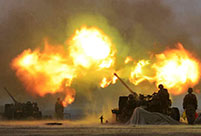 Top 100 beauties in the world!
Top 100 beauties in the world!
 Gallery: Who is the most beautiful one?
Gallery: Who is the most beautiful one?
 If you like autumn, put your hands in the air!
If you like autumn, put your hands in the air!
 Fan Bingbing's "Queen style" in new play
Fan Bingbing's "Queen style" in new play
 Lingerie show at 2014 Miss China
Lingerie show at 2014 Miss China
 J-10 fighters show aerobatic stunts in smog-free sky
J-10 fighters show aerobatic stunts in smog-free sky
 Charming contestants of Shanghai Int’l Model Contest
Charming contestants of Shanghai Int’l Model Contest
 Most amazing chi-pao beauties
Most amazing chi-pao beauties
 7 deadly animal attacks
Russia to launch 70 Proton rockets by 2020: official
7 deadly animal attacks
Russia to launch 70 Proton rockets by 2020: officialRussia's President Vladimir Putin and his Chinese counterpart Xi Jinping (2nd R) meet during a bilateral meeting at the Diaoyutai State Guesthouse in Beijing, November 9, 2014. [Photo/Agencies]
Chen Yurong, a senior researcher at the China Institute of International Studies, said the expanding megaprojects not only contribute to Russia's plan to diversify energy exports and boost development of the Far East, but also "resonate with China's increasing demand for energy security".
China is Russia's biggest trading partner, with bilateral trade reaching $89.2 billion last year.
Both sides have shown hope that the annual trade figure could reach $100 billion by 2015 and $200 billion by 2020.
Gao Fei, a professor at China Foreign Affairs University, estimated that as the neighbors expand the agenda for their strategic partnership, "closer teamwork on energy will lead to a leap forward in the short term, while the long-term breakthrough may be realized in the financial sectors".
Beijing and Moscow have offered substantial support to each other in the past year in the international political arena.
Chinese ambassador to Russia Li Hui defined the increasing political trust as "having achieved a new height" in an article published in late October in a Russian magazine.
Yang Cheng, deputy director of the Center for Russian Studies at East China Normal University in Shanghai, said, "Both sides have listed each other as the top priority of their diplomatic blueprint."
Behind the strong political trust is "the shared pursuit of major emerging economies seeking a greater capability to shape the international and regional orders," Yang said.
 |  |
 World Pole Dance Championship in China
World Pole Dance Championship in China In pics: PLA stages live-fire drill in NE China
In pics: PLA stages live-fire drill in NE China  59-year-old Liu Xiaoqing still looks stunning
59-year-old Liu Xiaoqing still looks stunning  Standard faces for each countries in the world
Standard faces for each countries in the world Shocking! Photos of Chinese fighters revealed
Shocking! Photos of Chinese fighters revealed Images of angels in white: At work v.s off work
Images of angels in white: At work v.s off work  Post-85s female pilots and their mission
Post-85s female pilots and their mission Netizens fall in love with champion swimmer Ning Zetao
Netizens fall in love with champion swimmer Ning Zetao Vibrant 21-year-old and her own Cheongsam brand
Vibrant 21-year-old and her own Cheongsam brand Top 10 most dangerous jobs in the world
Top 10 most dangerous jobs in the world  Top 10 fifth generation jet fighters in the world
Top 10 fifth generation jet fighters in the world Top 10 Chinese goddesses
Top 10 Chinese goddesses  Top 20 hottest women in the world in 2014
Top 20 hottest women in the world in 2014 Top 10 pure beauties in showbiz
Top 10 pure beauties in showbiz  Top 10 world's highest-paid models 2014
Top 10 world's highest-paid models 2014 The most gorgeous Chinese women
The most gorgeous Chinese women Top 10 most handsome faces in Asia
Top 10 most handsome faces in AsiaDay|Week|Month